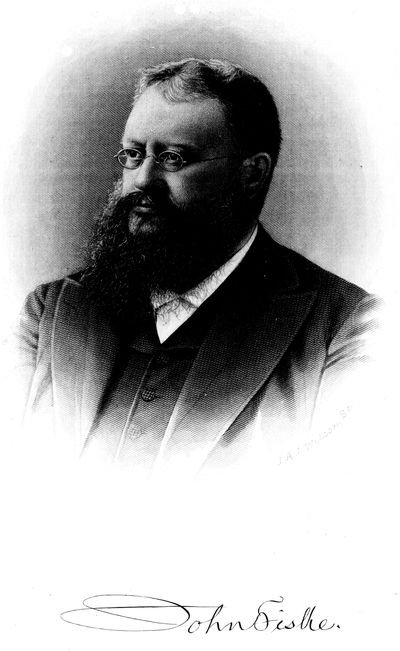Transcriber's note: Obvious printer's errors have been corrected, allother inconsistencies and errors are as in the original. The author'sspelling has been maintained.
Description of the characters not found in the Unicode tables:
[p-] p with stroke below.

THE
DISCOVERY OF AMERICA
WITH SOME ACCOUNT OF ANCIENT AMERICA
AND THE SPANISH CONQUEST
BY
JOHN FISKE
IN TWO VOLUMES
VOL. I.
Then I unbar the doors; my paths lead out
The exodus of nations; I disperse
Men to all shores that front the hoary main.
I too have arts and sorceries;
Illusion dwells forever with the wave.
I make some coast alluring, some lone isle
To distant men, who must go there or die.
Emerson

BOSTON AND NEW YORK
HOUGHTON, MIFFLIN AND COMPANY
The Riverside Press, Cambridge
1897
Copyright, 1892, By JOHN FISKE.
All rights reserved.
SIXTEENTH THOUSAND.
The Riverside Press, Cambridge, Mass., U. S. A.
Electrotyped and Printed by H. O. Houghton & Company.
TO
EDWARD AUGUSTUS FREEMAN,
A SCHOLAR WHO INHERITS THE GIFT OF MIDAS, AND
TURNS INTO GOLD WHATEVER SUBJECT HE
TOUCHES, I DEDICATE THIS BOOK, WITH
GRATITUDE FOR ALL THAT HE
HAS TAUGHT ME
(p. v) PREFACE.
The present work is the outcome of two lines of study pursued, with moreor less interruption from other studies, for about thirty years. It willbe observed that the book has two themes, as different in character asthe themes for voice and piano in Schubert's "Frühlingsglaube," and yetso closely related that the one is needful for an adequate comprehensionof the other. In order to view in their true perspective the series ofevents comprised in the Discovery of America, one needs to form a mentalpicture of that strange world of savagery and barbarism to whichcivilized Europeans were for the first time introduced in the course ofthe fifteenth and sixteenth centuries, in their voyages along theAfrican coast, into the Indian and Pacific oceans, and across theAtlantic. Nothing that Europeans discovered during that stirring periodwas so remarkable as these antique phases of human society, the mereexistence of which had scarcely been suspected, and the real characterof which it has been left for the present generation to begin tounderstand. Nowhere was (p. vi) this ancient society so full ofinstructive lessons as in aboriginal America, which had pursued its owncourse of development, cut off and isolated from the Old World, forprobably more than fifty thousand years. The imperishable interest ofthose episodes in the Discovery of America known as the conquests ofMexico and Peru consists chiefly in the glimpses they afford us of thisprimitive world. It was not an uninhabited continent that the Spaniardsfound, and in order to comprehend the course of events it